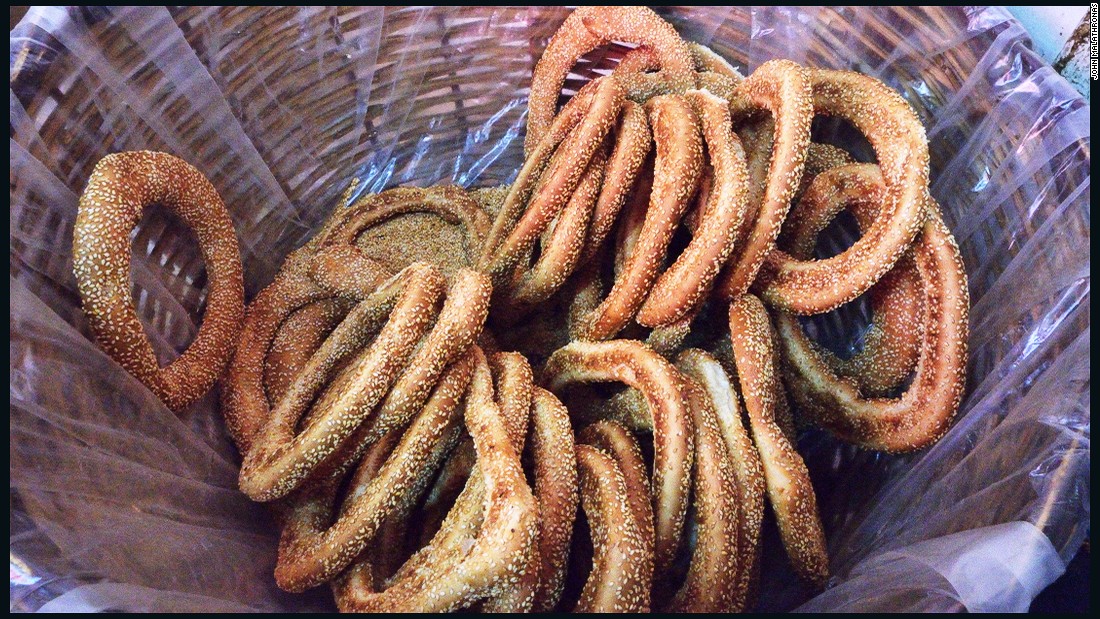Athens street food: A taste of Greece's culinary revolution

When morning coffee is served as thick, dark and potentially brain-exploding as this, we can only be in Athens.
We're being served this potent, unfiltered concoction, brewed together with sugar in a traditional brass pot over a gas flame, as fortification for a food tour of the Greek capital.
No other drink, apparently, will do.
"Tea is for the sick and the infirm," says Diana Kantaroglou, a guide with the Alternative Athens tour company (+30 69 51 51 85 89), who's leading us around some of the best culinary haunts in Athens.
Which is why our day begins at Cafe 111 in Monastiraki, the bazaar neighborhood of Athens. (Cafe 111, Ermou 111 & Agiou Filippou, Athens; +30 21 0323 7967)
And we're in no particular rush to get going.
"Greeks are heavy coffee drinkers," adds Kantaroglou. "We also like to socialize in cafes unlike, say, the Italians with their quick drink-and-go espresso shots."
Once finished, we turn over the cups and let the residue run down inside; there are still professional coffee readers who will predict your future from the resulting pattern.
None are present so early in the morning, so we put our fate in Kantaroglou's hands and head out.
We're on the trail of some of the best street food in Athens -- a culinary scene that's changed rapidly in recent years as Greek economic woes and the recent European migrant crisis have had an unexpectedly delicious impact on the city's eating habits.
Savoring the essence
Kantaroglou brings us to the Athens meat and vegetable market where all Greek staples are on show.
There's fruit, olives, dried meats, raisins and nuts of all persuasions: stubby hazelnuts, pistachios in their shells, roasted peanuts, salted almonds, chopped walnuts and more.
But we have to go elsewhere for the basic ingredient of the Greek diet: olive oil.
"We're the world's third top producers of olive oil and its biggest consumers," Kantaroglou tells us as we enter Lalades (Lalades, 3 Plateia Agion Anargyron, Athens; +30 21 0325 5407), a Greek deli at Agion Anargyron square. "We use 18 liters per capita every year."
Inside the deli, everything is ready for an olive oil tasting as serious as anything encountered in a French winery.
We dip bread into little oil jars and then chew slowly to savor the essence.
We all love the extra virgin oil from the Aegion region of the Peloponnese, pressed cold, with its low acidity.
We're also fond of "agourelaio," used for salads and grilled fish, a bitter oil from unripe olives responsible for the aroma of many a Greek holiday island meal.
Then there's honey.
"In Greece we transport beehives where there's food for the bees," says tour guide Kantaroglou. "So there are three types of Greek honey made from thyme, pine or blossoms.
"Thyme honey is the most expensive as there's less of it; the herb blooms for only two weeks in July and it's only then that bees can feed on its tiny pink flowers."
"We use honey all the time as a sweetener replacing sugar, but also at breakfast poured into yoghurt."
Hello and welcome to Steemit new member here.
@taidaominh